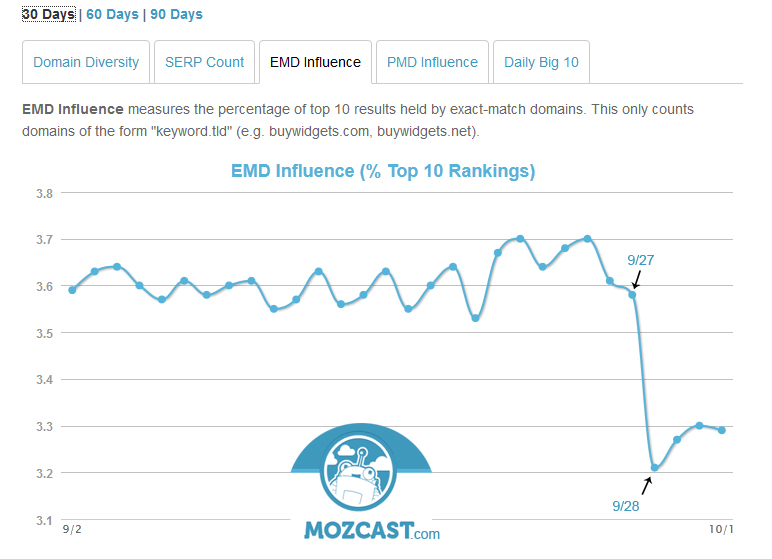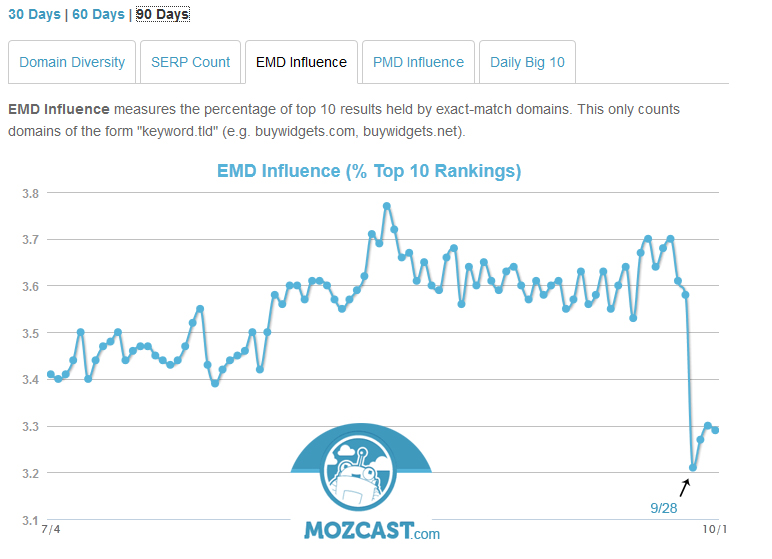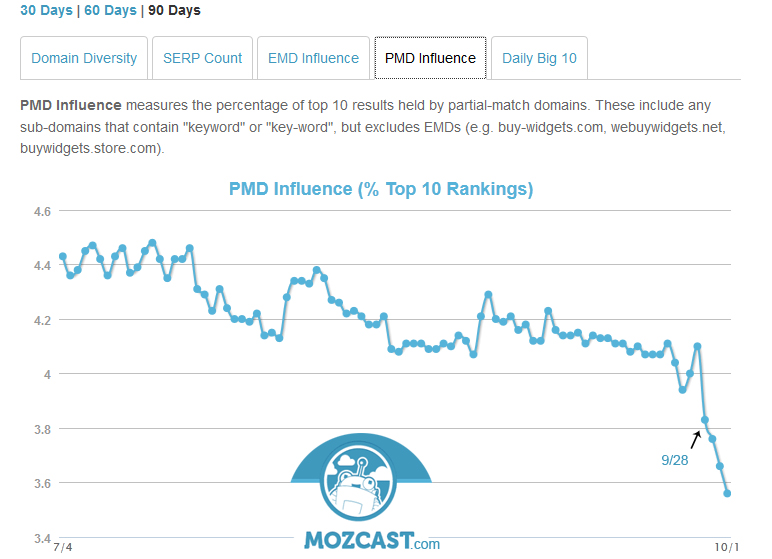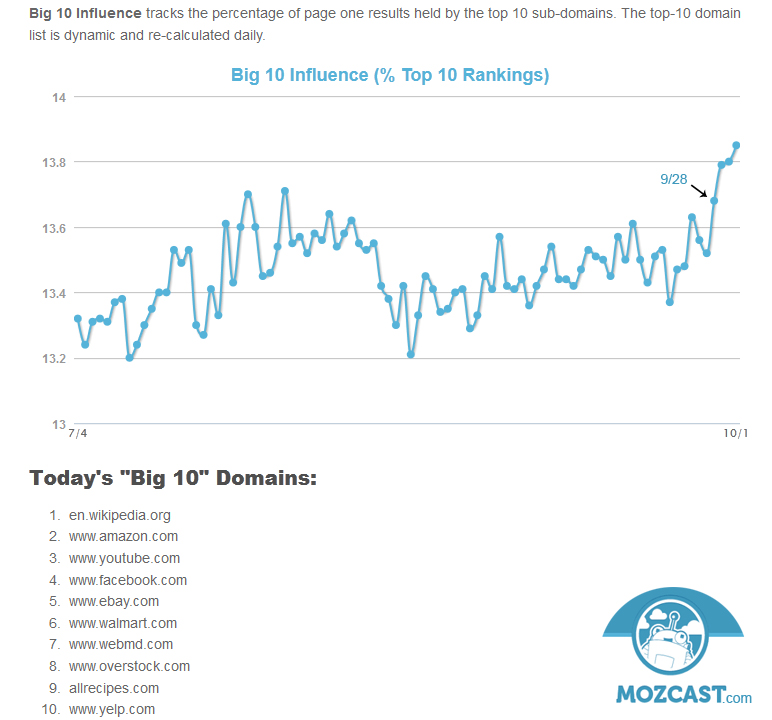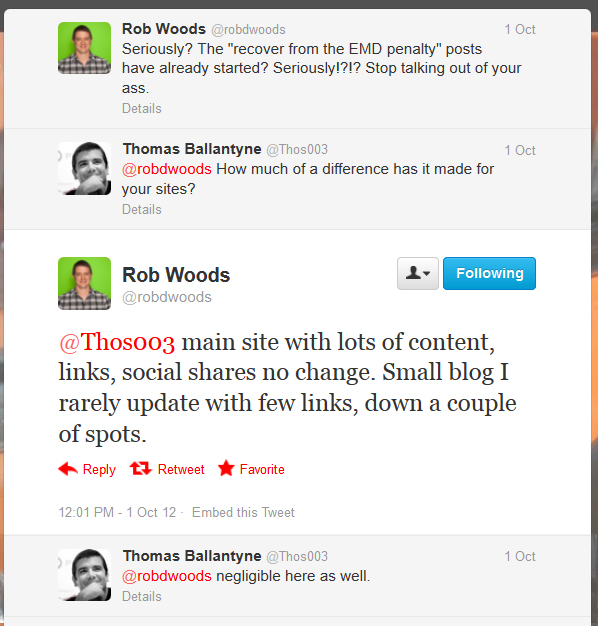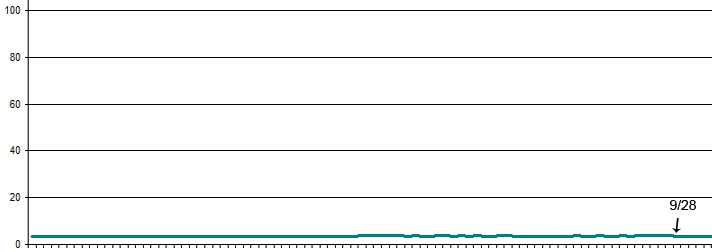Google announced and passed yet another update.
Minor weather report: small upcoming Google algo change will reduce low-quality "exact-match" domains in search results.
" Matt Cutts (@mattcutts) September 28, 2012
Matt went on to say:
New exact-match domain (EMD) algo affects 0.6% of English-US queries to a noticeable degree. Unrelated to Panda/Penguin.
" Matt Cutts (@mattcutts) September 28, 2012
Reactions have varied from "It's about time." to "wwwaaaahhhh wwwaaahhhhh.. <sniffle>".
How Big Was Google's Exact Match Algorithm Change?
Dr. Pete with SEOmoz went on to say that of 1000 terms that they monitor there was a net of 36 domains that fell out of the top 10. That would be a 3.6% change. So there are those that are calling Matt Cutts a liar, claiming this a huge upset. And the Mozcast graph looks pretty convincing. If you look at the 90 day swing on Mozcast the movement is even more noticeable.
But this shift isn't just affecting exact match domains. This shift is hitting partial match domains as well, per the weather report.
Interesting to note that the shift on partial match domains has been in a downward trend for the past 90 days. Perhaps Matt's 2nd comment is a little more telling in that the exact match update is 0.6% unrelated to Panda and Penguin. Therefore, exact match domains could be falling as a result of a Panda or Penguin update not related to their exact match domain. Any site deemed "low quality" is in danger of falling, and an exact match domain alone won't save it. "Quality" websites will win. Give Google all the right signals and you will rise, with or without an EMD.
As with every algorithm update there are winners and losers. Perhaps this is what I find most disturbing about the EMD update.
Who Are The Winners?
The forecast seems to be projecting a lot more of Wikipedia in the search results. And why not? Shouldn't Wikipedia be listed number 2 with page links for "teeth whitening" over a site like Teethwhitening.org who is selling advertising and maybe even leads from their website? Perhaps it's not the "dentist approved" teethwhitening.com's fault that there is some brand confusion between their .com and and the affiliate marketing .org resulting in neither site being listed in the top 10. What we do know is that Google's Adwords Tool rate's this keyword as very competitive. And Google is saying "If you want to compete then you must provide more than a keyword stuffed domain name."
Now begins the Exact Match Domain Survival guide.
Yes, you read that correctly. Despite all the fancy charts above and the dips in the exact match signal, Rob Woods is saying that it hasn't had much of an impact. Let's rework those charts.
The fluctuation is on a percentage base. Above is a 1-100 scale. The peaks and valleys of the recent EMD update per SEOmoz's scale is exactly 0.37%. Understandably, if your mega site falls in that .0037 then this update is painful. And I would be a little upset to see a Wikipedia page take my place for my keyword rank that gives customers the "pest control" they are searching for. But in the big picture, this update is very minor. A good exact match domain will still rank. And if all things are equal, an exact match domain will out rank a non exact match domain for that "Exact Keyword". Over simplification, because we cannot find a scenario with all things equal.
In the end, the exact match update has adjusted the signal for keywords in the domain, but as this is only one of many signals, the impact my not be as significant as some SEO's are screaming.
If you liked this post, you might also enjoy How To Work With Exact Match Domains Post-Penguin

